7 best movies like Fight Club on Max, Prime Video, Apple and more
Maybe we do not talk about Fight Club, but we do talk about these movies like Fight Club
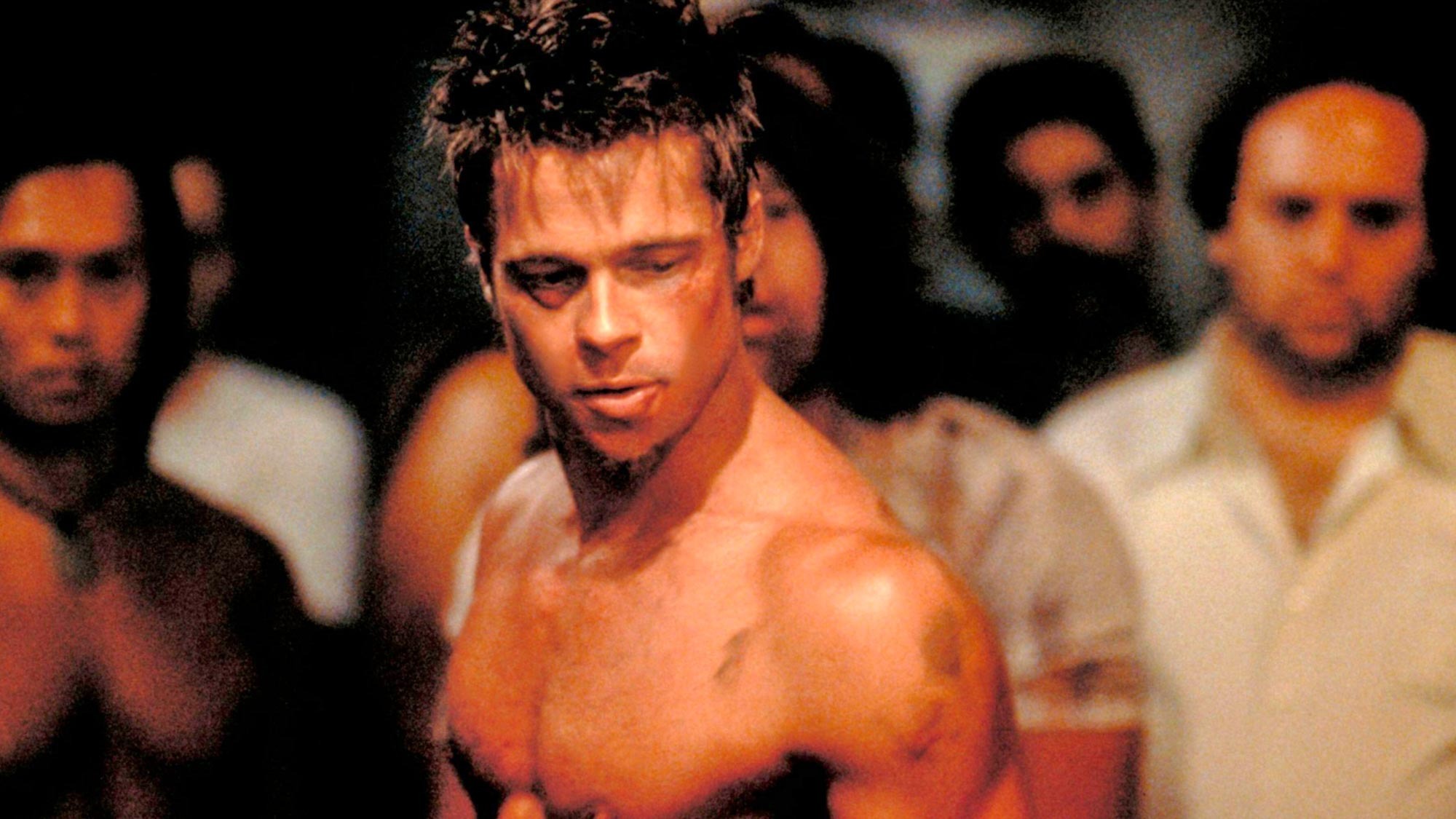
David Fincher's Fight Club debuted in 1999 and blew plenty of minds with a particularly shocking twist. Based on the novel by Chuck Palahniuk, the film is not only a slinky, effortlessly cool examination of a man who appears to be down on his luck, but a study of the many intricacies of identity. It also starred Brad Pitt and Edward Norton, so it was a natural must-see for many.
Fight Club introduces us to an unnamed narrator (Norton), a disillusioned corporate drone, who, along with the enigmatic Tyler Durden (Pitt), creates an underground fighting ring. It starts out as a way to escape the monotony of everyday life. But the club soon spirals into Project Mayhem, a much more nefarious venture that pushes both moral and legal boundaries. Soon, audiences are forced to confront some serious questions: who is Tyler Durden, and more importantly, is he everything he claims to be?
It’s been over two decades since its release, but Fight Club remains a cultural phenomenon and a cult favorite. Its gritty narrative, slick cinematography, and unexpected twists make it an unforgettable viewing experience. But what do you watch when you’ve already experienced the entirety of Fight Club? There may be nothing exactly like it to seek refuge in after your first viewing, but there are plenty of other films that invoke its anarchic spirit.
Here are some movies like Fight Club that you can dive into once you come stumbling out of the movie that started it all.
Memento (2000)
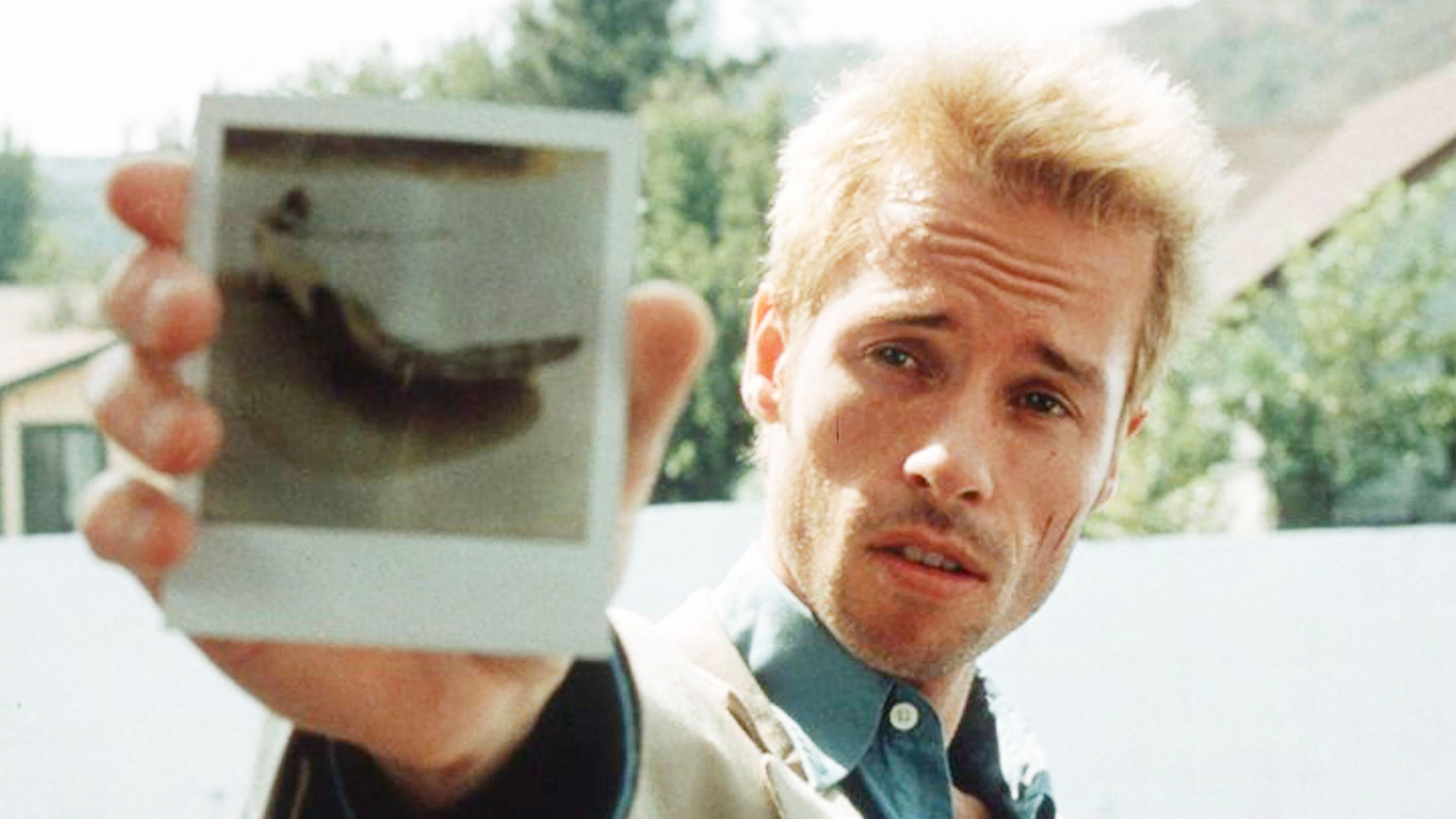
Christopher Nolan's Memento is an intriguing tale of the faultiness of memory and the pursuit of truth, echoing elements of Fight Club. It’s an often-underappreciated thriller that takes audiences on a non-linear journey where the past and present collide. It probably goes without saying, but nothing is as it seems here.
Leonard Shelby (Guy Pearce), is a man relentlessly searching for the man who murdered his wife. There’s just one problem: He has amnesia. He can’t make any new memories, so while searching for the murderer, all he can do is rely on Polaroids, tattoos on his body, and notes to figure out what’s going on.
Memento's reverse chronological structure makes it a bit of a challenge to piece together the narrative. But that’s why it makes such a great companion to Fight Club. It plays with perceptions and reality the whole way through, but the payoff at the end is definitely a satisfying one.
Sign up to get the BEST of Tom's Guide direct to your inbox.
Get instant access to breaking news, the hottest reviews, great deals and helpful tips.
Watch on Prime Video and YouTube
Donnie Darko (2001)
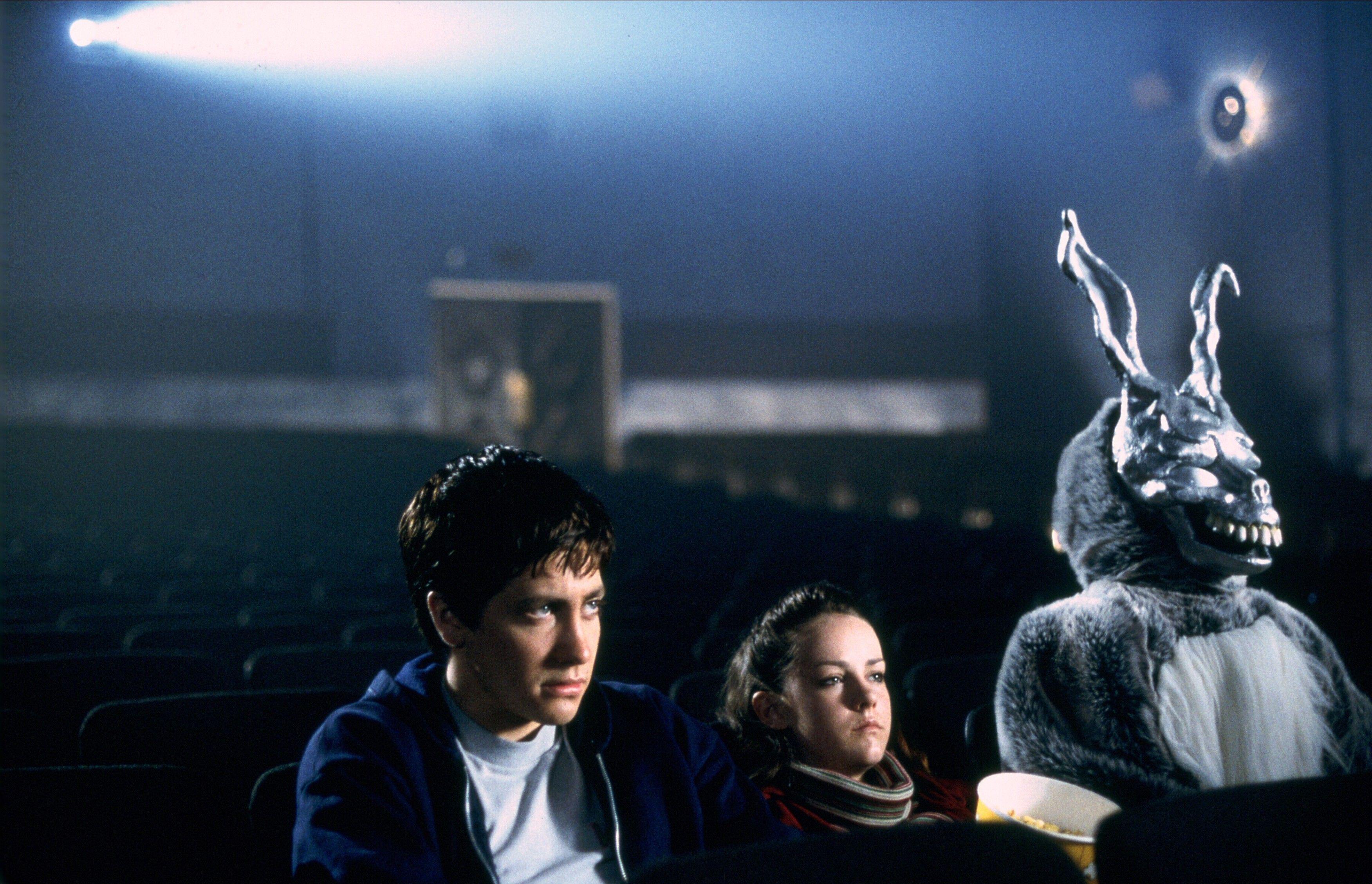
Donnie Darko is a satisfying blend of psychological drama, science fiction, and dark comedy. It also features one of the best ‘80s-themed movie soundtracks you’ll find in a movie from the 2000s. More to the point, it touches on themes of existentialism, destiny, and what we know about reality itself, much like Fight Club.
Donnie (Jake Gyllenhaal) is a troubled high school student plagued by visions of a sinister rabbit named Frank (James Duval). This mysterious entity informs him that the world will end in 28 days, leading Donnie on a surreal journey filled with wormholes, theoretical physics, and personal demons. And, terrifyingly, an airplane engine that falls from the sky that may or may not have been meant for him. Donnie begins struggling with the nature of his existence as life begins to unravel around him.
Both Donnie Darko and Fight Club are explorations of identity, destiny, and the often blurry line between the imagined and the real. In both stories, there are multiple instances where it’s not so clear whether something happened, or if we imagined it, and fans of Fight Club should feel at home with the flick.
Watch on Max
The Game (1997)
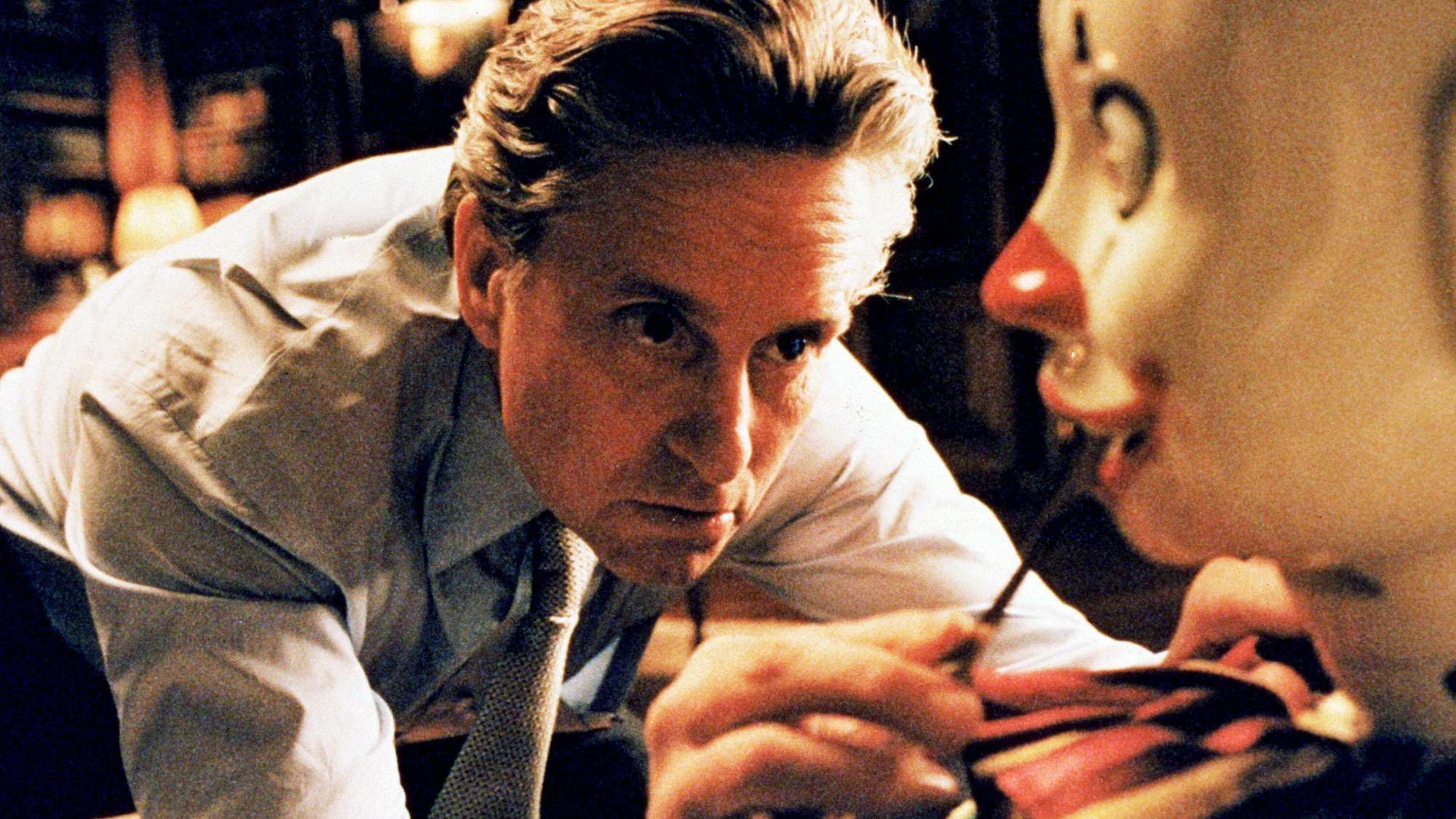
The Game is another psychological thriller from Fincher that invites viewers to a high-stakes situation where reality is blurred. Sharing thematic elements with Fight Club's exploration of identity and one's place in an unpredictable world, The Game is a must-watch for anyone who also loves Fincher’s work. It also happens to feature Michael Douglas, like Falling Down (further down this list).
Nicholas Van Orton (Douglas) has his structured life changed forever when his estranged brother (Sean Penn) gives him an unusual gift from a company called Consumer Recreation Services. What begins as a seemingly innocuous game soon devolves into a series of conspiracies, brutal betrayals, and life-or-death scenarios. Nicholas can barely recognize the man he’s become at the end of it all, and you’ll be on the edge of your seat the whole time.
Fincher’s work on Fight Club and The Game is pretty similar, though The Game is more about the series of secrets that unravel after you realize someone isn’t quite who you thought they were. Both challenge viewers to think about what could happen in their lives if a little chaos happened to be introduced as well.
Watch on Apple
The Machinist (2004)
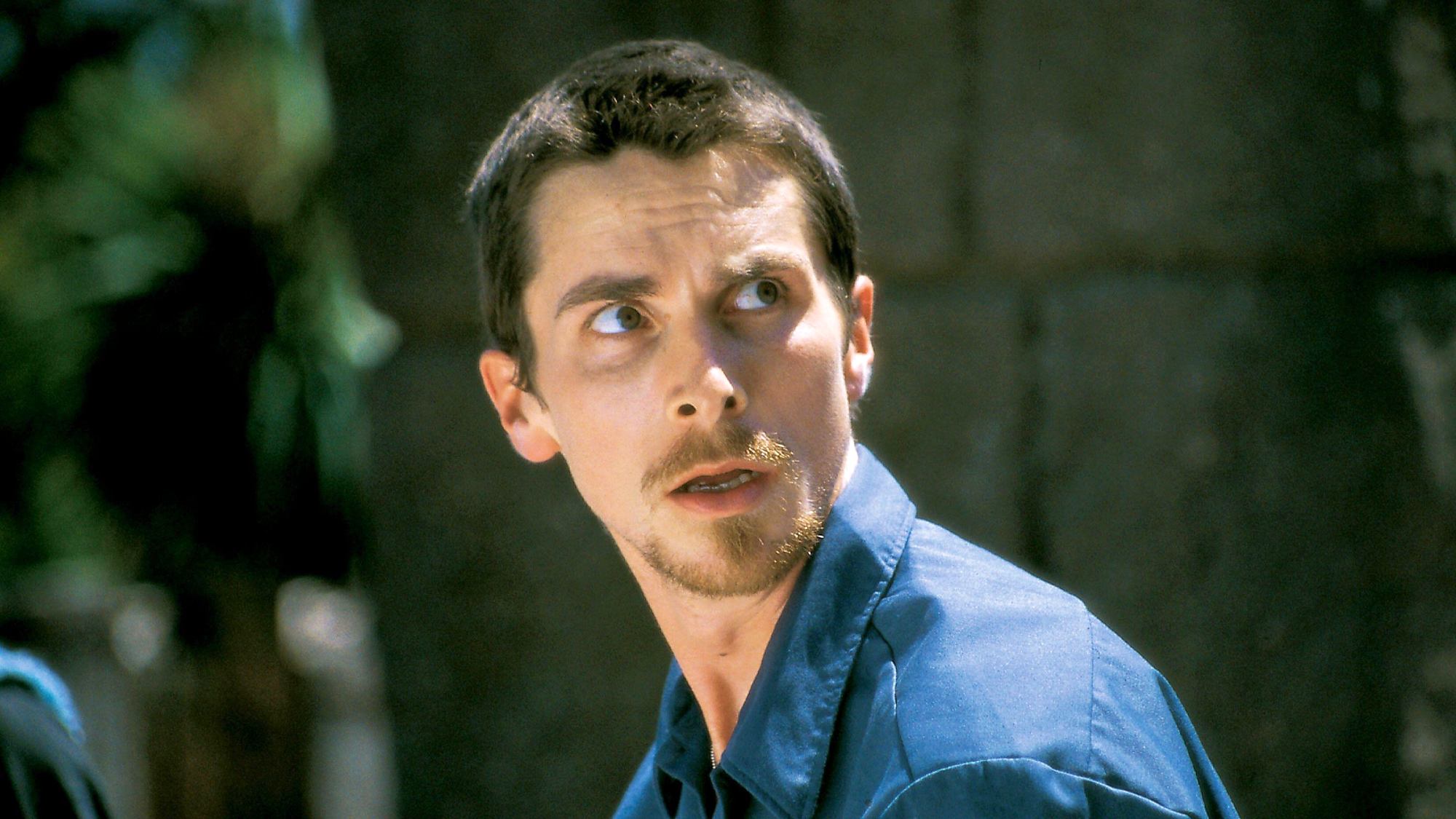
The Machinist is a stylized, unsettling dive into the depths of guilt and insomnia and how they can drive a person to behave completely unlike themselves. From there, it shares certain parallels with Fight Club, especially when it comes to the exploration of a mind plumbing the depths of madness. The Machinist isn’t afraid to explore the aftermath of a man who’s crossed the line from reality into something considerably more harrowing — without a viable way back.
Christian Bale delivers a bristling performance as Trevor Reznik, a factory worker who hasn't slept in a year. As his body withers away to a skeletal frame, so does his grip on reality — a feat Bale actually underwent for the movie, looking completely unlike himself by the end of the film. Haunted by cryptic Post-It notes and plagued by mysterious coworkers, Trevor's life becomes an increasingly distorted maze. As he seeks answers to unravel the looming conspiracy he believes is around him, he discovers an even more disturbing truth that could even implicate him.
This is a tale of a man trapped by his own mind, though its narrator can be extremely unreliable, much like Fight Club, which is one great reason to move from that film to this one, one after another, if you’re feeling ready for a short marathon viewing.
Watch on Paramount Plus, YouTube and MGM Plus
Falling Down (1993)
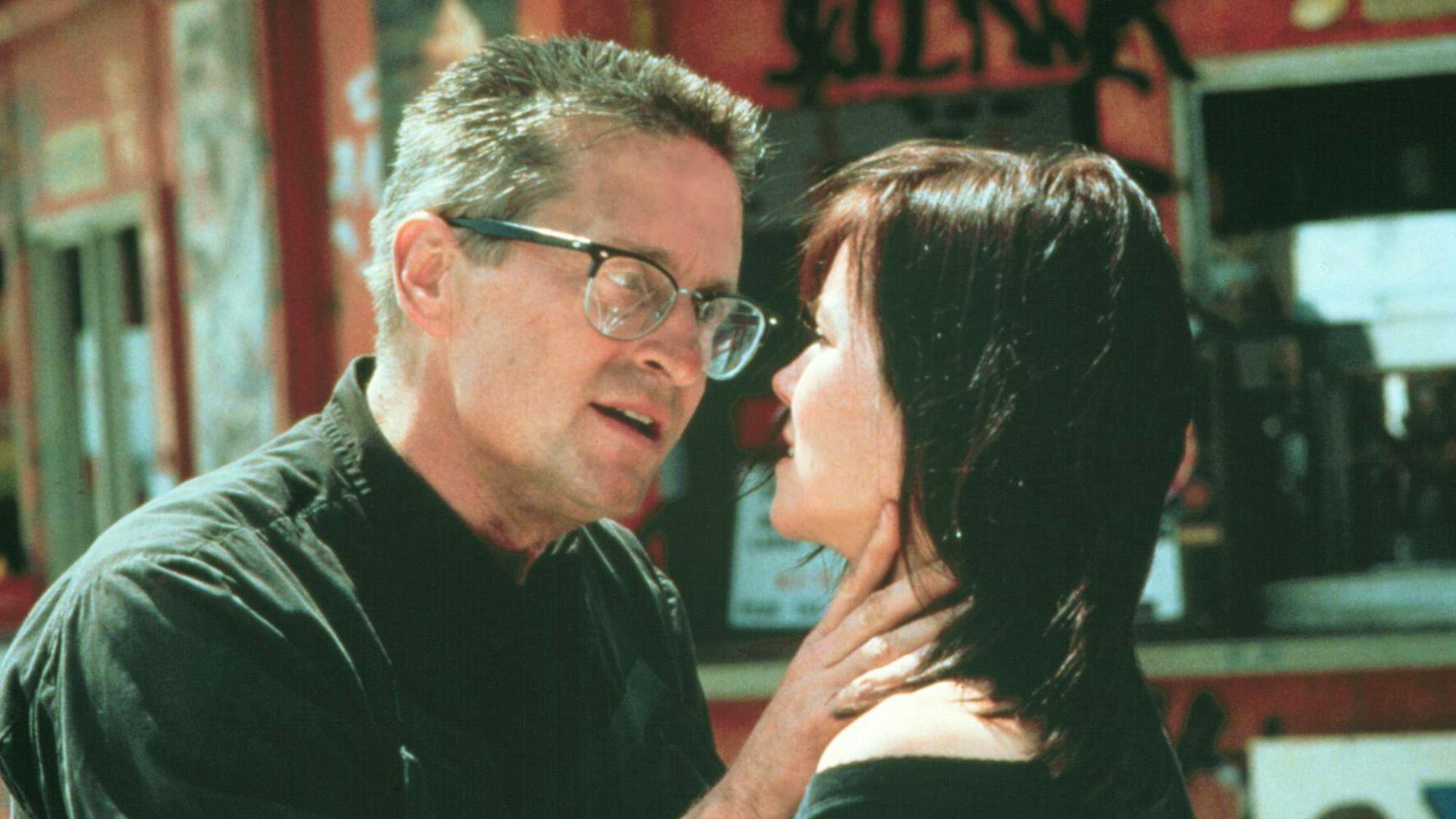
Falling Down isn’t an easy watch, but one that Fight Club fans can appreciate. It also explores the pressures of modern life and what happens when an everyman reaches his breaking point. Much like Fight Club delves into the consequences of societal constraints, Falling Down presents a haunting diorama of a disintegrating urban life.
William "D-Fens" Foster (Michael Douglas) is an unemployed defense worker who, on one particularly sweltering day, abandons his car in the middle of L.A. traffic. His aim? To get himself home. It may sound like an easy trek, but it’s anything but. Everything leaves him incensed in some way, from overpriced convenience stores to fast-food policy mishaps. By the end of the movie, his ultimate unraveling is both a cry for help and a reflection of societal discontent.
Chasing him through the city is Detective Prendergast (Robert Duvall) on his last day before retirement. As Prendergast pieces together the puzzle of Foster’s breakdown, the film highlights the fine line between sanity and madness and flat-out disillusionment. In this, Falling Down and Fight Club could be the closest of cinematic cousins.
Watch on Prime Video
American Psycho (2000)
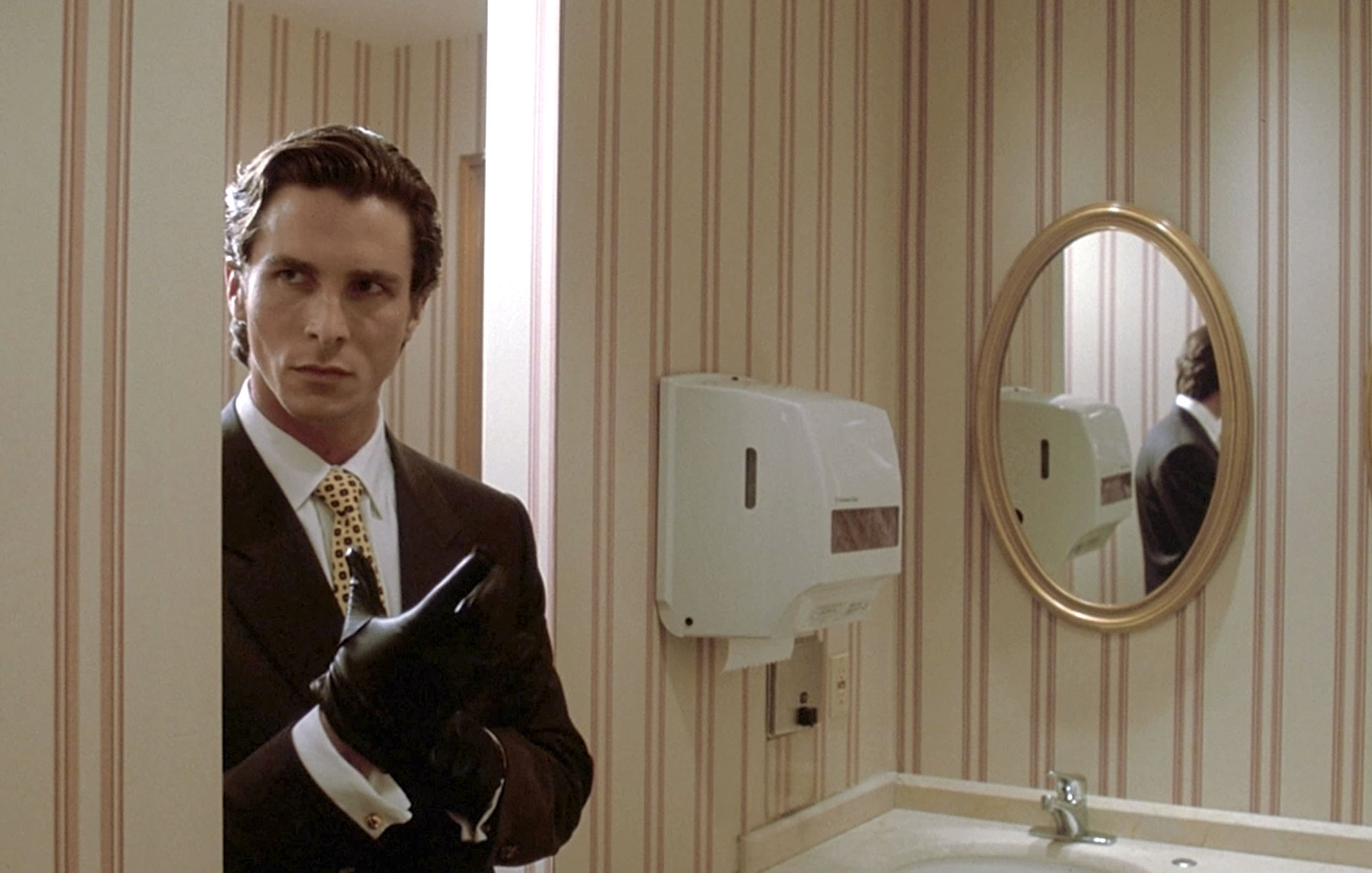
Bret Easton Ellis's controversial novel made for an even more uncomfortable movie for many. American Psycho can be difficult to view, to say the least. This examination of ‘80s yuppie culture is also the story of a demented serial killer whose sociopathic tendencies make for a compelling and disturbing watch.
Patrick Bateman, played with cold precision by Christian Bale, is a wealthy investment banker by day. Beneath the designer suits, however, lies a completely psychotic man who uses “returning videotapes” as a euphemism for giving in to his violent tendencies. As he navigates the high-stakes world of Wall Street, Bateman's grip on reality becomes increasingly tenuous. Driven by envy, lust, and an insatiable desire for validation, he routinely leaves brutal violence in his wake everywhere he goes, all the way until the bitter end.
Though Fight Club, of course, doesn’t explore serial killers or even the drive to murder others (like innocent homeless people), it does share some of the nihilistic views of society and questioning of the systems in place that allow for the things in the movie to actually happen. And like Pitt’s portrayal of Tyler Durden, this is one of Bale’s best performances.
Watch on Apple
Gone Girl (2014)
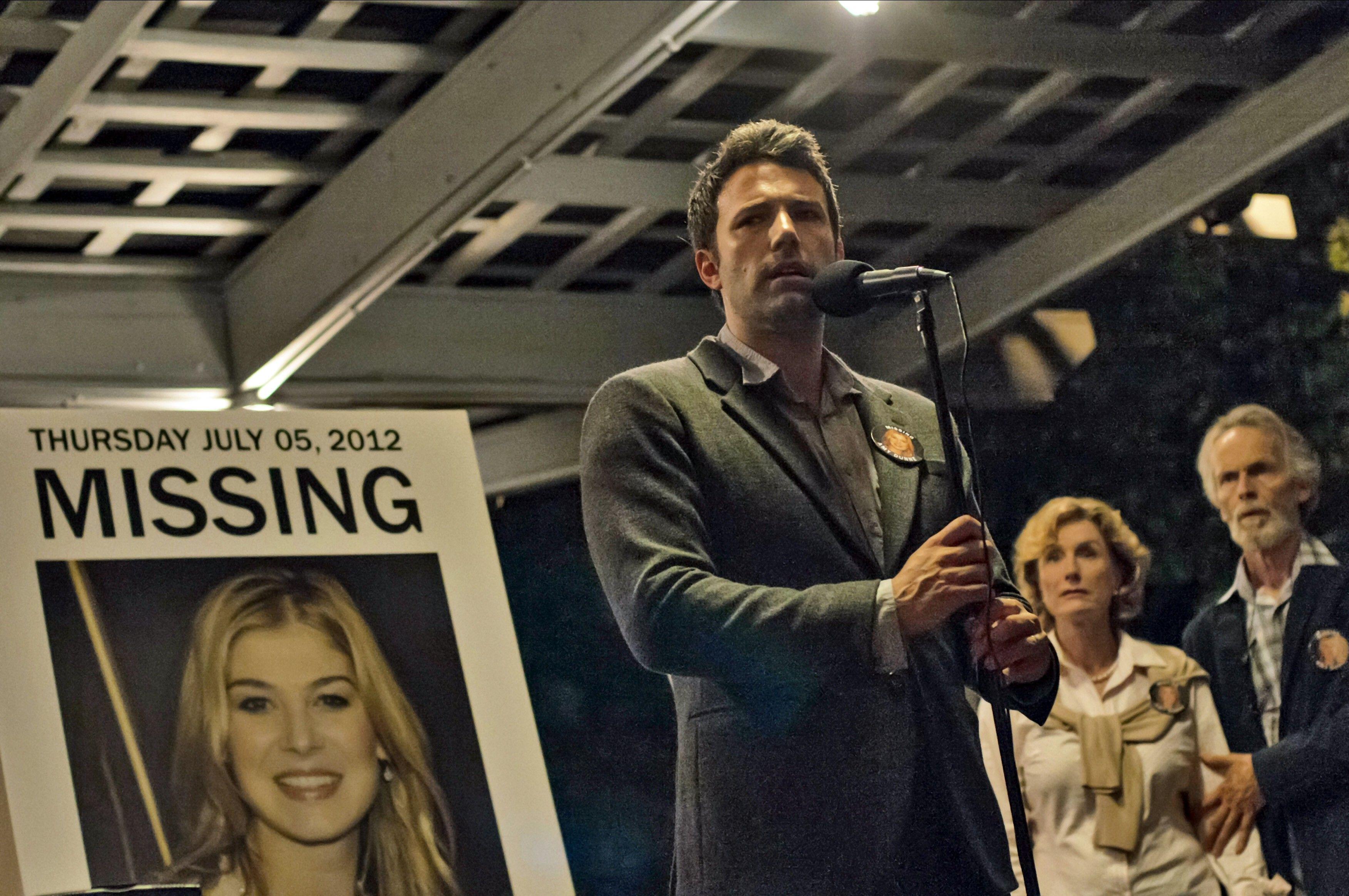
Gone Girl is another film adapted from a best-selling novel, this one by Gillian Flynn. It explores a set of complex relationships as well as dual identities. Similar to Fight Club putting societal expectations and multiple personalities under the microscope, Gone Girl presents a haunting look at a marriage gone horrifically awry.
Nick Dunne (Ben Affleck) finds himself at the center of a media frenzy when his wife, Amy (Rosamund Pike) seemingly vanishes into thin air on their fifth wedding anniversary. As Nick works to investigate her disappearance, Amy's diary entries paint a picture of a seemingly idyllic romance that’s been hiding something far more sinister. The search for Amy reveals multiple shocking truths and misdirections, as well as characters who are never quite what they seem.
Like Fight Club, Gone Girl presents revelations that force viewers to question the reliability of its protagonist. This is also another film directed by Fincher, who employs similar film techniques from Fight Club here.
Watch on Prime Video and Max
More from Tom's Guide
Brittany Vincent has been covering video games and tech for over 13 years for publications including Tom's Guide, MTV, Rolling Stone, CNN, Popular Science, Playboy, IGN, GamesRadar, Polygon, Kotaku, Maxim, and more. She's also appeared as a panelist at video game conventions like PAX East and PAX West and has coordinated social media for companies like CNET. When she's not writing or gaming, she's looking for the next great visual novel in the vein of Saya no Uta. You can follow her on Twitter @MolotovCupcake.

